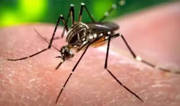
Karnataka logs over 4,000 dengue cases till July; Heavy rains may spur more
Posted 27 Jul 2023 | Source: https://indianexpress.com/
Dr Swati Rajagopal, consultant-Infectious Disease, Aster CMI said the weather conditions , incessant rains and waterlogging could be contributing to the rise in dengue and malaria cases.
Karnataka has logged 4,013 cases of dengue till July 19 this year compared to 3,403 cases in the same period in 2022. Of the total number of cases this year, 2,065 cases are in Bengaluru.
According to the data provided by the Bruhat Bengaluru Mahanagara Palike (BBMP), 825 dengue cases have been recorded till July 19 this year. In June there were 689 cases of dengue in the city.
In the period January to July 19, Bengaluru East reported 679 cases followed by 421 cases in Mahadevapura zone. Similarly, Bommanahalli, Dasarahalli, RR Nagar, Bengaluru South, Bengaluru West and Yelahanka zones logged 135, 28, 99, 356, 222 and 125 cases, respectively.
The data suggest that there has been a significant drop in the number of dengue cases over the years in Bengaluru. While there were 44,863 such cases in 2019 the numbers came down to 6,679 in 2020. Similarly, there were 6,166 such cases in 2021, there were 5,589 cases in 2022.
Senior consultant- internal medicine with BGS Gleneagles Global Hospital, Dr Balakrishna GK attributed the rise in dengue cases to incessant rainfall which the state is witnessing presently.
“As the rainy season begins and climate conditions change, the likelihood of further increases in dengue and malaria is expected. We are witnessing 8 to 10 cases of dengue and 1 to 2 cases of malaria daily. Dengue and malaria are transmitted through the bite of infected mosquitoes (Aedes Aegypti in case of Dengue and Anopheles in case of Malaria ) and both diseases pose serious health risks,” he said.
Adding further he said, “Symptoms of dengue include high fever, severe headache, joint and muscle pain, rash and in severe cases, dengue, haemorrhagic fever associated with bleeding and dengue shock syndrome. Symptoms of malaria include high-grade fever with chills, headache, nausea and body aches. Severe cases may lead to loss of consciousness.”
Balakrishna suggested that in order to minimise the risk of dengue and malaria mosquito breeding sites should be eliminated. “Mosquitos breed in stagnant water so ensure there are no containers or areas around your home where water is collected regularly. Clean and empty flower pots ,vases, birdbaths, coolers, and any other objects that can accumulate water. Proper disposal of garbage properly in covered bins prevents the accumulation of waste that can attract mosquitoes. If any symptoms are associated with malaria and dengue such as fever, joint pains and rashes medical attention should be sought,” he elaborated.
Dr Swati Rajagopal, consultant-Infectious Disease, Aster CMI said the weather conditions , incessant rains and waterlogging could be contributing to the rise in dengue and malaria cases.
“Avoid collection of water in pots , tyres or coconut shells – if accumulated / must be discarded. Use full sleeved shirts and trousers to avoid mosquito bites. Using mosquito nets and mosquito repellent creams would help. If any symptoms of fever , chills , headache , back pain , body pain – may be wise to consult a health care provider for getting one tested for dengue / malaria,” she added.
